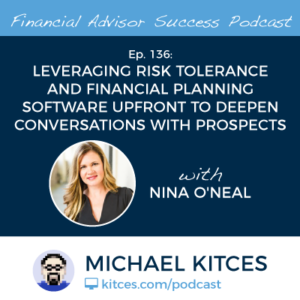Back in early 2015, the White House directed the Department of Labor to propose and implement a new rule that sought to impose a fiduciary standard on broker-dealers… or as the President’s administration put it, “Wall Street brokers who benefit from backdoor payments or hidden fees and don’t put the best interest of working and middle class families first.” At the time, the Administration argued that “bad incentives and bad advice” meant that consumers were losing upwards of $17 billion per year to their retirement accounts, implying that any compensation that was based on the sale of a financial product was unduly expensive and inherently “bad”, especially when contrasted against (good) “firms who choose instead to put their clients’ interests first [under a fiduciary assets-under-management model].”
But, as is often the case, such black and white distinctions are rarely so cut and dry, as no fee model is completely without some underlying conflict of interest between a business that wants to get paid and the consumer trying to decide if their services are worthwhile. Especially since in practice, the cumulative costs for clients of advisors who charge under the AUM model can add up to far more than even the most expensive, conflict-ridden financial product.
Yet, at the end of the day, while a client who pays a 1% annual fee over the course of seven years on the assets that an advisor manages will end out paying the same amount as someone who pays a 7% upfront commission on an annuity, the reality is that the fee on the annuity is a “sunk cost” (i.e., it’s paid up front to the salesperson and can’t be recovered by the client after the fact), while the client paying 25 basis points every quarter can “fire” the advisor at any time, and simply stop paying the fee if/when they are no longer happy with the level of service they’re getting. Which is why it’s not surprising (and the actual data shows) that advisors under the AUM fee model spend far more time servicing their clients than sales-based brokers. In other words, since the fees under the AUM model are more “severable”, the advisor has a natural incentive to provide more and ongoing service, and the consumer enjoys better protection by being able to terminate the service as soon as it’s not up to snuff.
However, in many cases, there are still hoops that a client has to jump through to sever themselves from the AUM-based advisor, including going through the process of finding a new advisor, opening new accounts, and transferring their money to a new firm. Which can create inertia, and could be one of the contributing factors to the fact that AUM-based advisors have such a high client retention rate (even sometimes in the face of mediocre service)… because in some cases, it’s not that the advisor provides such great service, but simply because leaving is such a pain.
For even more “severable” fee structures, consumers can turn to the newer retainer and subscription fee models. Though perhaps the model with the greatest fee severability is the hourly model, where there are no ongoing or recurring fees and which, by definition, terminates at the end of any meeting where the client doesn’t engage the advisor for any subsequent meetings or service.
All of which leads to the question of whether or not (state-level or Federal) regulators are scrutinizing retainer, subscription, and similar fee-for-service compensation models for advisors (i.e., those models with higher fee severability) properly and, in turn, underappreciate the added consumer protections such models naturally provide. Which, ironically, can end up pushing advisors back towards those models with lower fee severability and less consumer protection, where it’s easier for advisors to charge more and get away with doing less.
Ultimately, the key point is that, if the objective of regulation is to better protect consumers, then it’s important to recognize the role that fee severability plays in the process, as certain types of models (e.g., fee-for-service models which have been gaining traction in recent years) already have more of those key protections naturally built in. And while regulators continue to struggle with finding ways to make the more traditional sales-based models less conflicted and more transparent and severable, perhaps the focus for regulators when looking at the fee-for-service models is simply keeping them that way?

 Welcome back to the 136th episode of Financial Advisor Success Podcast!
Welcome back to the 136th episode of Financial Advisor Success Podcast!
